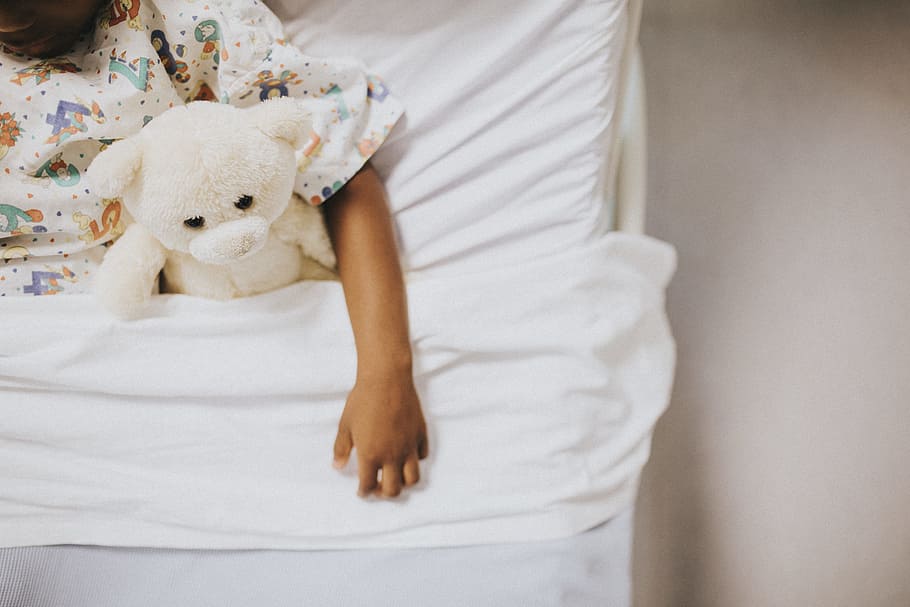All parents should know how poisoning manifests itself, what to do and when to urgently consult a doctor. Information about food poisoning in the article: Signs of food poisoning First aid for a child with food poisoning Applying for medical help must be urgent, if Emergency treatment
The earlier to take adequate measures when poisoning in the child, the less likely the problems and the more chances to cope quickly, but be careful, there may be situations when the emergency help is just necessary.
Symptoms of food poisoning may not appear immediately after the baby ate something wrong, but in the period from 2 hours to two days. What we are used to calling poisoning is actually a defeat of the intestines by pathogens – all kinds of microbes (enteroviruses, E. coli, Staphylococcus aureus, Klebsiella, Proteus, bacillus dysentery, and this is not the entire list), which cause the characteristic symptoms:
- Nausea and vomiting while the germs are in the upper gastrointestinal tract
- Diarrhea (diarrhea), not infrequently with mucus, when there is uncontrolled reproduction of microbes, and in some cases, intoxication by products of the bacteria (toxicoinfection)
- Increased body temperature
- Sharp pain in the abdomen, Most often in the area of the belly
- Cold sweat and cold hands and feet
- Severe weakness, drowsiness, lack of appetite
- In bacterial infections, the child’s skin becomes pale, even when the temperature is high.
First aid for a child with food poisoning
- If a child under 3 years of age has been poisoned, a doctor is always needed. At a minimum, he will be able to determine how dangerous the child’s condition is, prescribe laboratory tests if necessary, and recommend adequate treatment.
- The most important thing in poisoning is to prevent dehydration, because the child loses a lot of fluid with vomiting and diarrhea, as well as to reduce the concentration of toxins and accelerate their removal.
- Let your child drink as much as possible, and the first and most important drink should be a solution for peroral dehydration (pharmacy regidron, for example), which contains all the necessary electrolytes. In addition, let him drink whatever he agrees to – it is better to drink plain bottled water without gas, you can have morsels, compote of dried fruit. Carbonated drinks and any juices, both freshly squeezed and store-bought, are not the best option.
- If the child has severe vomiting, let him drink small sips, but often – so the vomiting urges will be less. If the baby is nauseous but does not vomit, it is worth calling it in as soon as possible – ideally in the first half hour of signs of poisoning. In this case, you will need to get him to drink a glass of warm water at once, and if this does not help, touch the root of his tongue with your fingers.
- As soon as possible give your child a sorbent, which will absorb the toxins and remove them from the body. Activated charcoal is recommended most often for children, because it is absolutely safe. Dissolve tablets of activated charcoal in water at the rate of 1 g. per 1 kg. Weight the child and give it to drink. More modern sorbents are available now, but it is worth consulting a pediatrician before using them on children.
- If the temperature rises above 38 degrees, it is worth reducing it with an ibuprofen or paracetamol-based antipyretics approved for children. The same drugs will help if the child complains of abdominal pain.
Abdominal pain does not always mean an intestinal infection. A different composition of water on a trip to the resort or an excess of seasonal fruits and vegetables in the country house can lead to the same result. Signs of an intestinal infection are well known: appetite is lost, nausea and vomiting occur, then diarrhea, and fever. Feed your baby little by little, but often with chamomile tea, still mineral water, dried apricots. Skip a couple of meals, then give her rice with water and expand her diet.
It is also worth remembering that in the country house or at a resort in the water dissolved other mineral salts – not the same as in the one that flows at home from the water supply. Sensitive to such things, the microflora of children’s intestines can suffer because of this. Dysbacteriosis with unstable stools and increased gas formation (flatulence) occurs. They bloat the bowel loops, causing abdominal pain.
If your baby suddenly has a sharp pain in the abdomen that does not subside for 1-2 hours – do not put a hot water bottle, do not feed and do not give medication. Immediately show your baby to the doctor to find out the diagnosis. It could be an attack of appendicitis and other acute pathology requiring emergency surgery.
